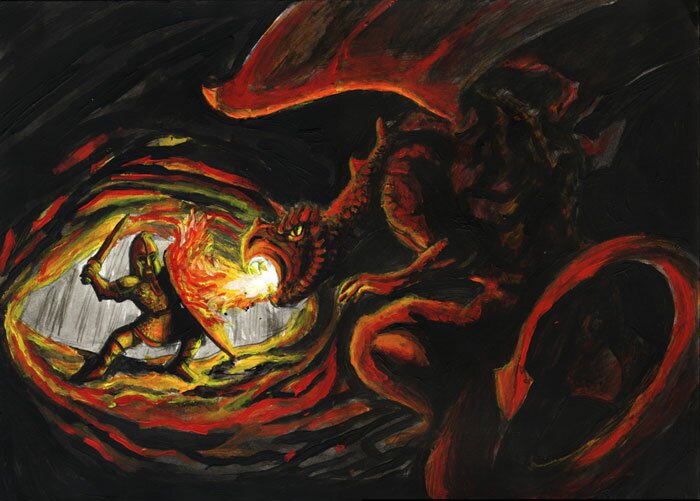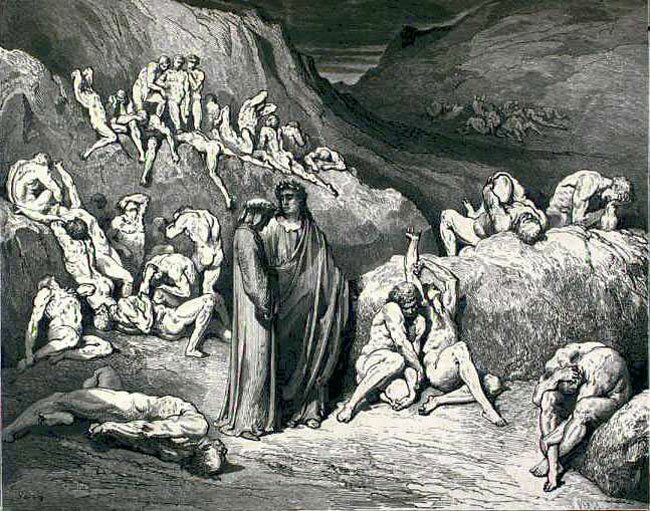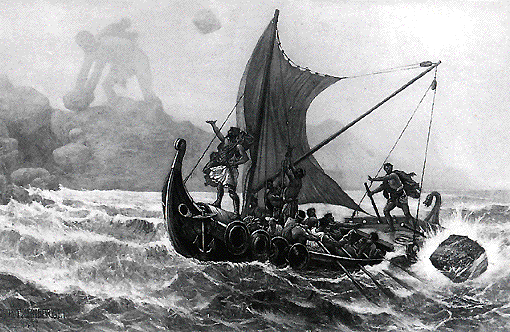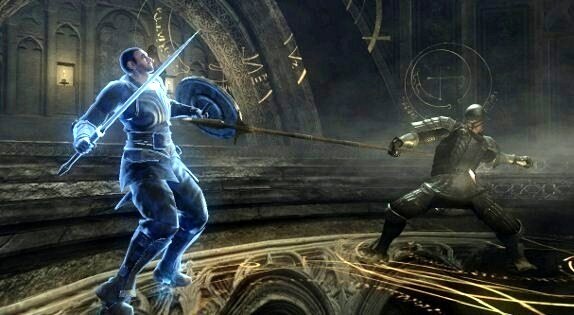Since it’s US release in October 2009* Demon’s Souls has been written on, raved about and still garners a slew of appreciative writings wherever you look. Praised for its graphical prowess, unique integration of online features and the blistering, yet fair, challenge unseen in mainstream gaming for some time, it seemed that whilst Demon’s Souls was by no means for everyone, those who did love it, really loved it. Many approached Demon’s Souls because of sheer amount of critical accolades, the want for a real challenge, a breath of fresh air. For as many who loved Demon’s Souls because of what it does right, you’ll probably find just as many who simply could not deal with its unforgiving nature, the patience required to persist which such a title, unless you are uncommonly good at it, is enough to make saints out of better men. Living in the UK meant that I was able to read about Demon’s Souls at great length before I was actually able to sample its delights, granted I could have always imported a copy, yet it is something I am always reticent to do. Ironically I acquired a Chinese-English copy from a local game shop three weeks before the PAL release, to say I was excited would be a fantastic understatement. After an hour with the game I was distinctly aware of two things; firstly, I wasn’t very good at it, and secondly, I really wasn’t very good at it, not at all.
Eighteen hours in and I’m still trying to chip away the rock hard exterior, sometimes I believe I have managed to grasp what exactly it has to offer, that I have ascended to the next level of gaming Zion and others I feel it has been rudely yanked from my grasp, only to then remind me it is not the game who is failing, it is me. It was after being struck down in one fell swoop by a jagged Cleaver after spending forty minutes battling to that point, did I realise exactly what Demon’s Souls reminds me of, this feeling I’ve felt before, one of immeasurable reward at comprehension and completion in a distinct dichotomy with the inaccessibility and torment of failure. Demon’s Souls was taking the form, albeit allegorically, of Epic poetry such as Dante and Homer. But why does such a game appear to lend itself more towards verse than prose? Can it really be said that a game can still be compared or even traced to a literary source? Do the ludic elements prohibit this? Such an analogy my be irrelevant and self-indulgent, just another love song for this hunchback of the gaming world, yet for something which is so close to superfluousness, it feels so right. Please join me on this journey, it may well be an epic, it may well not. It is, however, a genuine journey of discovery.
Where is Demon’s Souls not an Epic then? It is realistic to assume that it behaves like or exhibits potential of epic poetry as much as it does not. The lack of any real interaction with other speaking characters, the absence of long monologues, deaths of friends who must be avenged, law and love, they are all largely missing from the narrative of Demon’s Souls. Although it is the lack of narrative driven gameplay which is where I would suggest the player takes up much of the role of the heroic main character, and is where the narrative potential lies. This will, for some, ultimately seal the fate of this experiment, this journey, as a failure. If you have yet to play Demon’s Souls, or have experienced its narrative in a fundamentally different way, then you might think assume that I am taking the game’s potential and spelling out too much with it, attributing more to it than is really there. My response to this? Not a dramatic rebuttal or eloquent counter-argument, perhaps a shrug, truth you may be right. You are right in the same sense that I am, that Demon’s Souls as any game or any media text is a polysemous, multifaceted, it can mean many different things to many different people.
Having started in an odd position and posed the question as to how Demon’s Souls might not be an Epic I will now move to consider why It might not be more akin to like prose, the novel or even like a film (although that assertion is straying from the point). To come to this conclusion I’ve not just drawn from the narrative of the game, although that would ultimately share the most similarities with prose as they can be both regarded as narrative media. Rather, I have taken the narrative and then used the ludic elements to shape it, to replicate other, more literary experiences and simulate how I would interpret it as another medium. For example, on a superficial level prose is generally ill-suited to lists, repetition, breaks in narrative momentum. Whereas the inventory screen of any RPG could be compared to the great inventories given in epic poetry. Or a lengthy discussion or monologue about the lore of a far off land would feel more at home in verse than it would in prose. The oral traditions of the Epic are far more accommodating to the “tell, don’t show approach”, as opposed to the reverse, which we are more accustomed to today. It might be worth noting that Demon’s Souls technically does not tell a lot, but it shows little of either, experimentation and trial and error are the chief methods of learning**, something I’d suggest is more akin to telling in its representation, although something many could disagree with.
As a novel, Demon’s Souls would undoubtedly be a dull affair without significant embellishment and transformation from what is a very ludic creation to a narrative one. Adaptation would keep it from being fragmented, repetitive, and finally, dare I say it, boring. There is a coincidence here, the traits I’ve just mentioned are those which many use to describe Epic poetry, whether rightly or wrongly. But reading verse which is born of an oral tradition cannot be considered in the same sense as prose which we’re more used to some 2000 years after the Epic. You’d be forgiven for thinking that I am saying Demon’s Souls is fit to be an Epic because it is boring, although this is completely not what is being said. Because of the lack of narrative direction in Demon’s Souls if you choose to recount the events of the game it won’t be framed by the game’s story so much, rather it will be your own (oral) retelling, there is a strong chance your memory of the game will take a form which is similar to epic poetry.
From heron I’m making the assumption that you’ve already read my prior piece on Demon’s Souls where I set about adapting sections of the game into epic verse. If you haven’t read it yet, I advise you take a few moments to read over it, you’ll certainly be able to see what I’m talking about more clearly.
The first example is the one which is the most lucid incidence where the ludic traits of Demon’s Souls can become rendered in epic verse***. As I’ve already mentioned Epic poetry is a retelling of a quest, of feats of heroism therefore great lists of spoils or victories, great boasts and descriptions of great battles become a familiar sight. This is not conveyed in any “conventional” sense within Demon’s Souls, there is no great boast, at no point does the game’s narrative ask you to marvel at your spoils and accomplishments. One traditional element of the RPG does, however, encourage this behaviour, and that is the inventory screen. Demon’s Souls inventory is no different from any other, but because of the form the game’s storytelling takes, the inventory can be see as the boast or at least, the great list of spoils. When I played Demon’s Souls my Hero was humble, understated (due in part to repeated deaths), boasting would not be his way. Although in the section I recreated, the Black Maiden asks my Hero to show his spoils, the Demon’s souls he has collected on his quest.
Whilst not everyone will be impressed by the dramatisation of an inventory screen but the very idea that somewhere in that great listing of items there’s a shred of epic poetry is one which I find pretty interesting. There is a problem here though, the use of the inventory within Demon’s Souls whilst echoing the boasts and vast lists of epics creates these lists for a very different reason. In a game the inventory is the best way of keeping track of your acquisitions not a great retelling of your adventures. The embellishment which has been added to each description of the souls shows that the inventory’s application is more utilitarian than that. The additions which have been made, rather than been those which are explicit within the game would originate from the player, the idea that looking over the inventory might stir a memory or two is not beyond conception, and a cataloguing of those thoughts has a certain Epic feel about them. Hell, the process of acquiring these souls is certainly an epic one.
Another noteworthy feature of the epic is it’s great laments, the despair at the death of a loved one or the loss of the battle. Demon’s Souls consists of laments like no other title, but again it’s not explicit within the game, you’ll be the one lamenting, again the process of this feels epic indeed, especially after vowing revenge over a giant demon to triumph the next time around. Generally the laments to revenge ratio within Demon’s Souls is not in your favour, this what makes the journey all the more difficult, more epic. The second sequence I recreated in verse is the approach to the second boss on the first level, the reason I particularly wanted to recreate this in verse was because of the process which I went through defeat the steely enemy was an epic one indeed.
We begin with the approach along the scorched battlements towards the keep where the demon is housed. Not only are you being harassed throughout by a giant dragon who spells instant death by fire, but also from arches and a series of black knights when you think you’ve made it to safety. In the section I recreated I only wrote about two attempts at defeating the boss, but really they were the final two of many many more. Each journey towards that keep could have made part of the verse, each defeat due to a poorly timed strike or step too far in the wrong direction. Each journey was a learning process,then a lament followed by a retry. It could be suggested a “real” hero of an epic would not face defeat so many times, but it’s the battle most fierce which offers the greatest spoils and isn’t that what every epic has to have?
This all is perhaps not enough to make the suggestion that Demon’s Souls is sharing breakfast with Beowulf and the Divine Comedy, rather, that through the trickling of culture over the last few centuries, ideas from one distinctly different medium can find themselves in another. There are more compelling arguments to be made for gaming and the connections to literature, whilst they don’t appear as obvious as the connection to film because of the lack of visual codes, I believe that with a little more digging they can surely be found. I hope what I’ve produced here goes to show the poetic potential of games like Demon’s Souls and may inspire more thinking along this path.
Chr15 6r33n (Follow me on Twitter at chrisgreen87 and for Chronoludic updates click here)
*And no doubt before in Japan too, although a successful title like this in Japan is less of a rarity.
** Or the Demon’s Souls Wiki
*** This is a nod to my academic study mostly, but the prospect (for structuralist critics) of my arguing the relative ease with which a ludic element can become verse will surely be a great heresy, form and content is (apparently) inseparable and the leap from a ludic medium to a narrative one doubly so.







3 Trackbacks
[...] Edit: The follow-up to this work is now live and can be found here. [...]
[...] This post was mentioned on Twitter by Chris Green, Chris Green. Chris Green said: Follow up to my Demon's Souls piece https://chronoludic.com/?p=682 the method behind my madness! [...]
[...] Ben Medler at Tread Digital looks at ?Why Mirror?s Edge is Modernist and Assassin?s Creed is Postmodernist?. I?m not entirely sold on this idea, as modernism/postmodernism are both more pernicious ideas than the article seems to portray; that said, it?s certainly well worth a read. Plus, remember Chris Green?s post at Chronoludic about Demon?s Souls as Epic Poetry last week? Well, here?s the follow-up. [...]